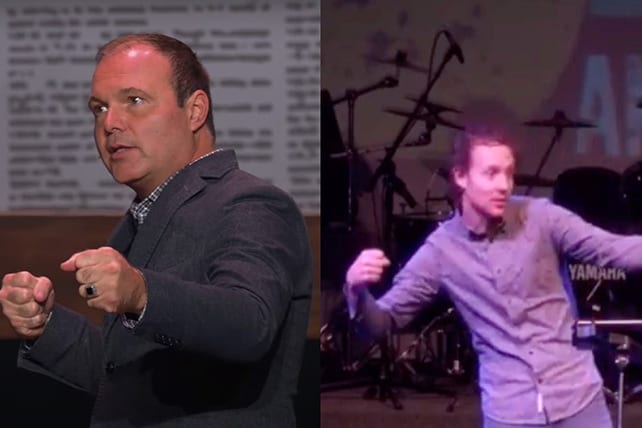Listening to the minister’s sermon at Franklin Christian Church, south of Nashville, she took exception when he began to criticize parents for passing bad habits — and bad genes — on to their children.
He included a joke about mothers passing on mental illness to their kids. Reese, who deals with depression, thought the joke was in poor taste and had little to do with Christianity.
When Reese typed the sermon title into Google, a link to her pastor’s latest sermon series popped up. But so did a three-year-old series from a church in Kentucky. The Kentucky sermon was almost identical to the sermon her pastor had preached.
Looking further, Reese discovered that her pastor had plagiarized hundreds of sermons — which made her feel as if she had been lied to. “I had to send my children to their rooms so that I could speak to my husband about it,” she said. “Because the words that came out of my mouth were really not Jesus-like in that moment.”
For many Protestant Christians, the sermon is the central act of worship during Sunday service, a moment when God speaks to the congregation through the Bible and their pastor. The sermon also plays a key role in attracting newcomers. According to a 2016 Pew Research survey, people searching for a new place to worship want a “good sermon and warm welcome,” with 83% saying that the quality of sermons played a key role in their choice.
But as Reese discovered, pastors are not always preaching their own words. While there are no statistics on outright plagiarism — claiming someone else’s words as your own — preachers love to “borrow” from each other.
As a young staff pastor at a church in the Pacific Northwest, Jesse Holcomb said that he and his colleague would be constantly on the lookout for good ideas at other churches. They even had an inside joke about it: “If you have eyes, plagiarize.”
Other churches were doing great work, so the thinking went, “Why don’t we take these ideas and use them as our own and bless our community with them?”
Things started to go wrong, said Holcomb, when his pastor wrote a self-published book filled with other people’s ideas. “I just remember sitting there thinking, ‘man, this is what we’re doing with everything,'” he said.
Plagiarism in book form is easier to catch and has struck as recently as 2017. Abington Press withdrew a book of prayers by the Rev. Bill Shillady, Hillary Clinton’s longtime pastor, after discovering he had plagiarized passages in the book. In 2013, megachurch pastor Mark Driscoll had to apologize when plagiarized material appeared in his book “Call to Resurgence.” Driscoll blamed a research assistant for using unattributed material.
For Driscoll, the plagiarism scandal was one of the first steps that led to his 2014 resignation from Mars Hill, the Seattle-based multisite megachurch that later splintered into separate congregations and no longer exists.
Continue reading on the next page

